Last Updated: 13/08/2025
German Shepherd Breed Guide
Is a German Shepherd the right dog for you? Our complete, vet-written breed guide covers everything: their loyal personality, shedding, training needs, diet, and common health problems like hip dysplasia. Get expert advice to see if this intelligent, courageous dog is a good fit for your family.
Author: Dr Carla Paszkowski BVSc (Hons)
Reading Time: 7 minutes - short read
Renowned for their acts of courage, confidence and loyalty, the German Shepherd is often on the front line of the police force and military units all over the world. These attributes mean they also make excellent household guardians and a devoted member of the family. While they're not known to greet every new face with the utmost enthusiasm like their Labrador counterparts, they will form close bonds with their family and will protect their own at all costs.
All about German Shepherds
Place of origin
Germany
Weight range
Female: 22-32kg, Male: 30-40kg
Breed size
Large
Height range
55cm to 65cm at shoulder
Breed group
Shepherd
Life expectancy
7 - 10 years
Coat colours
Black and tan most common
Grooming needs
High
Coat type
Medium outer coat with thick undercoat
Health issues
Hip dysplasia, osteoarthritis, GDV/bloat, degenerative myelopathy
Shedding factor
Moderate to high
Exercise needs
Vigorous daily exercise and play essential
Play style
Energetic, purposeful, interactive
Housing needs
Adaptable if activity needs are met
Trainability
Very high
Social needs
Highly intelligent and happiest when with their family
Family suitability
Active family with commitment to training
Tendency to bark
Moderate
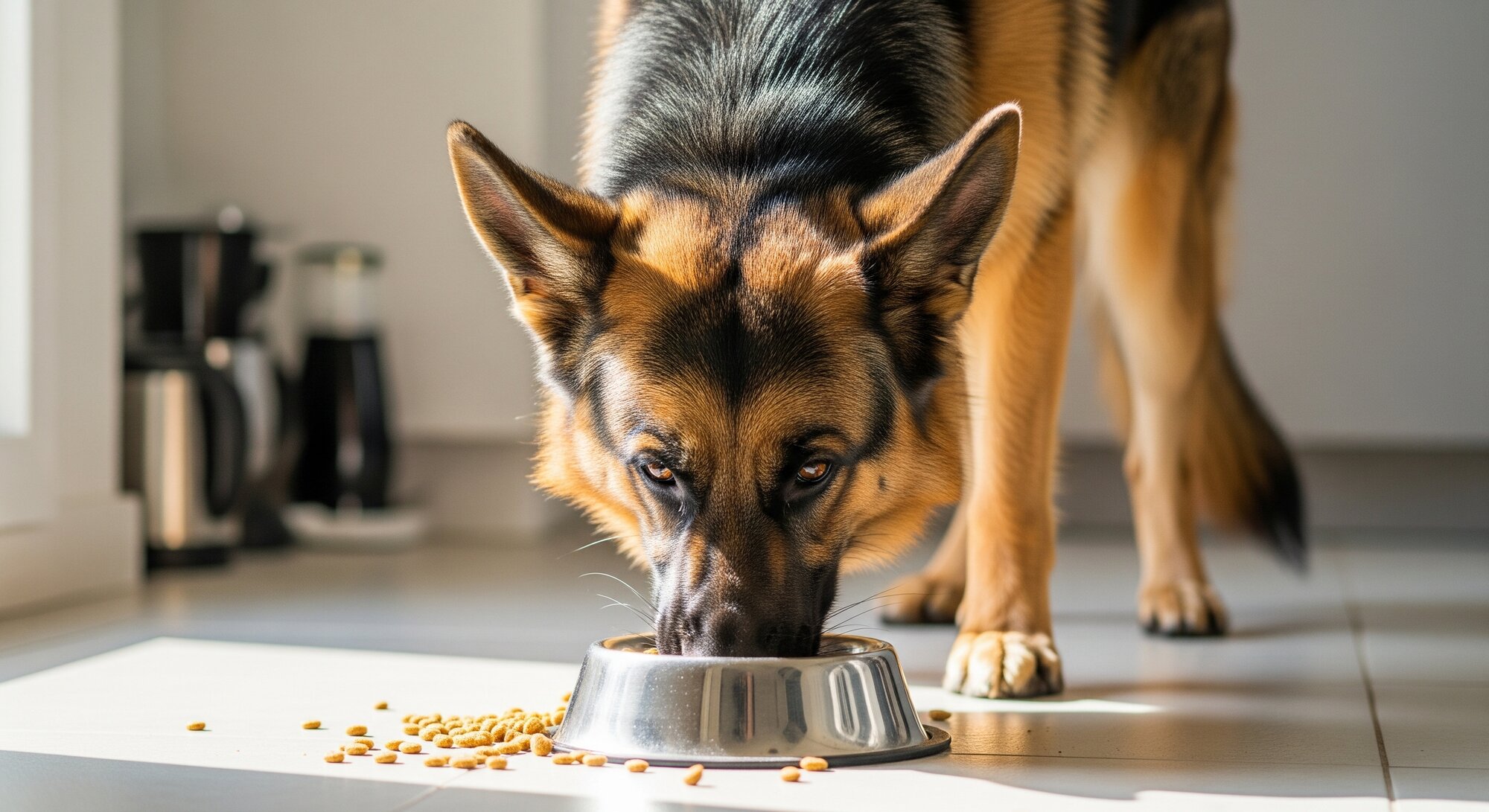
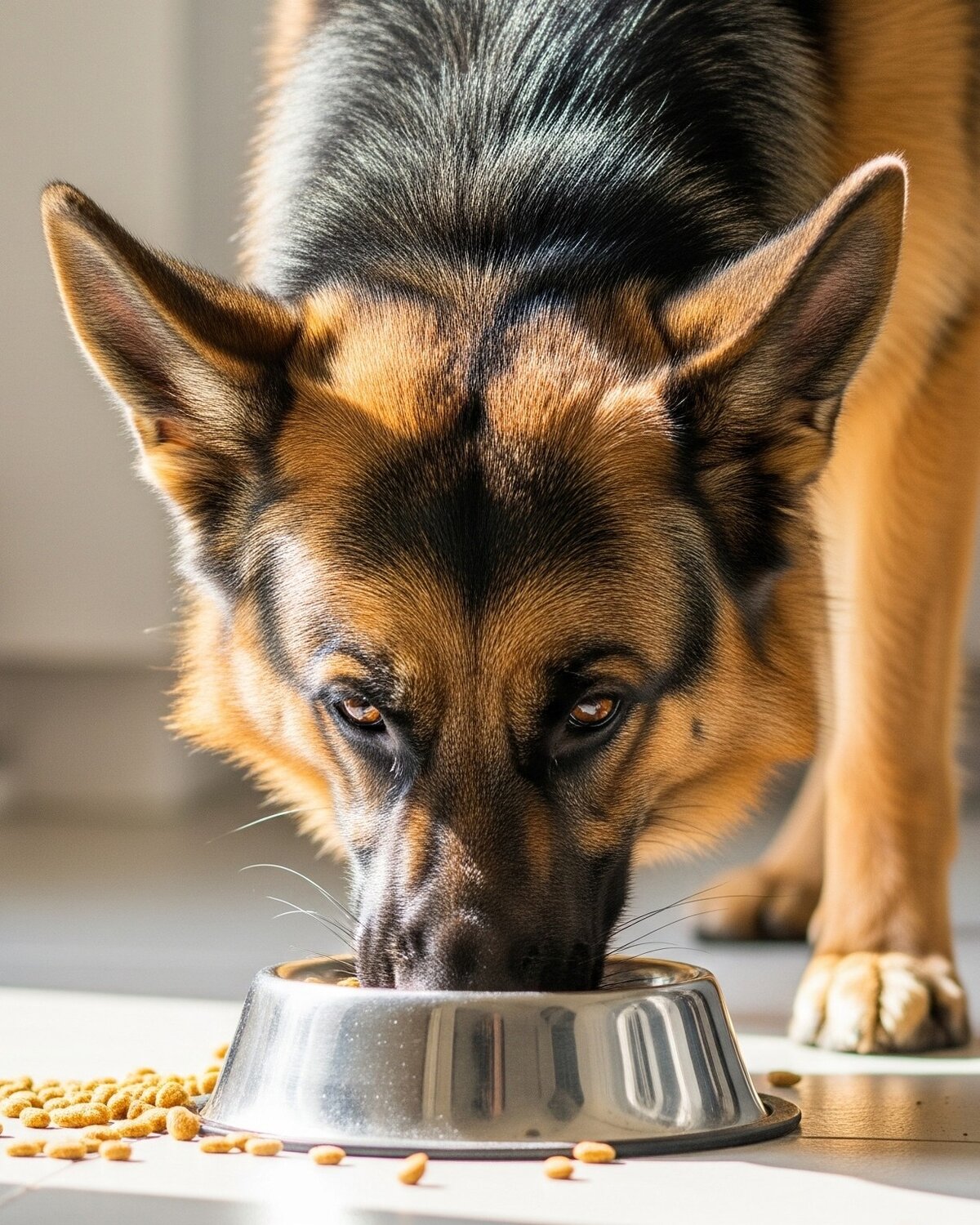
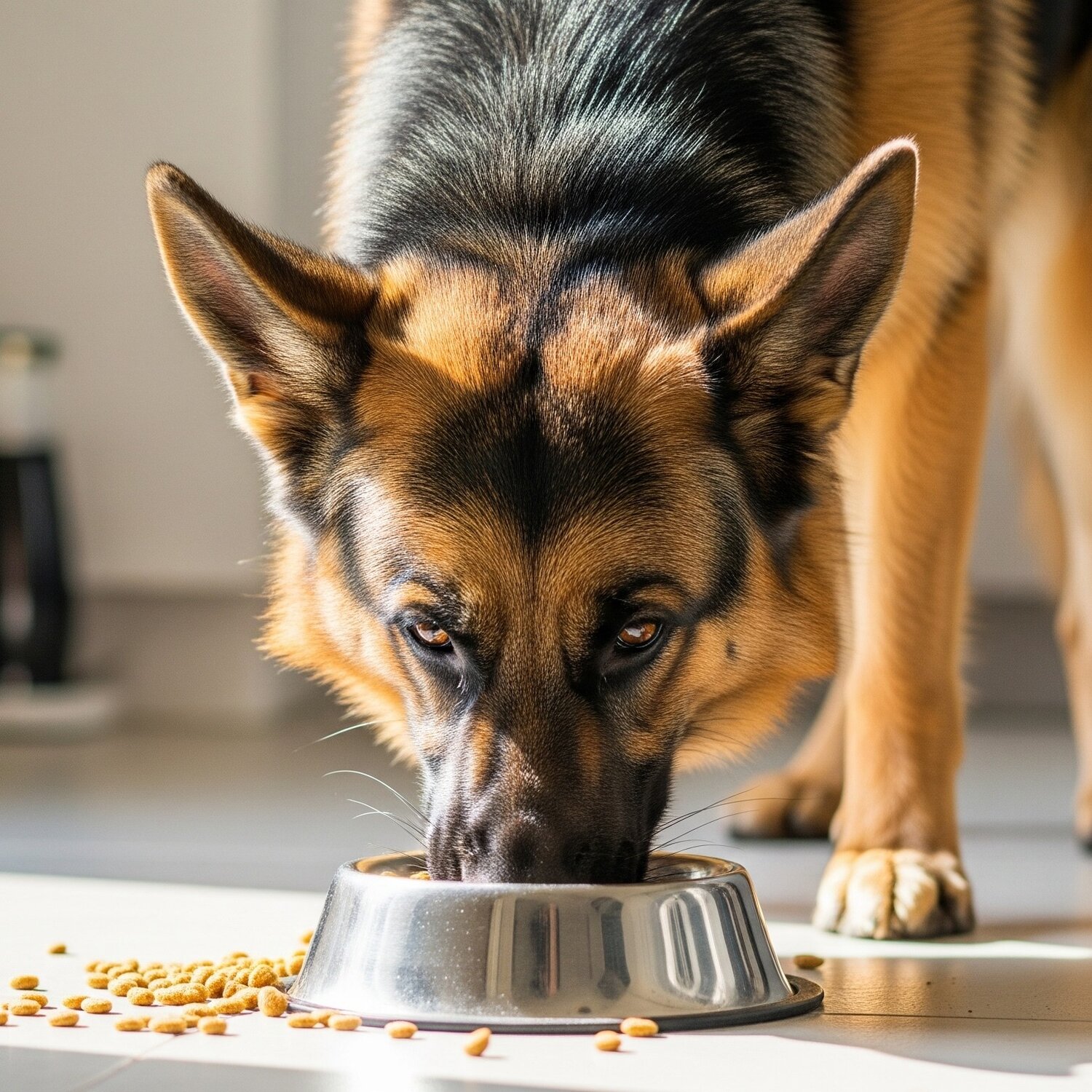
Nutrition
A German Shepherd's diet must be appropriate for their life stage: a specially formulated large-breed puppy food is essential to ensure a controlled growth rate and proper joint development, while adult and senior formulas should match their changing energy levels and metabolic needs.
Best food for adult German Shepherds
Proper nutrition is fundamental to the health and longevity of a German Shepherd, a large and active breed with specific dietary needs. Given their predisposition to joint issues like hip dysplasia, it is crucial to choose a large-breed-specific food fortified with joint-supporting supplements such as glucosamine and chondroitin.
Many German Shepherds also have sensitive digestive systems, so formulas with highly digestible protein with low to moderate fat levels and added prebiotics and probiotics are highly beneficial for gut health.
What to look for
Large breed specific food
Ingredients for digestive support
Nutraceuticals such as fish oil or green lipped mussel powder for joint support
Vet picks
Best food for German Shepherd puppies
Choosing the right puppy food ensures that your German Shepherd puppy gets the best start at life. German Shepherd puppies require a diet that is less energy dense than a standard puppy food, because overfeeding and an overweight body condition are important risk factors for the development of orthopaedic disease. Diets formulated for large breed puppies contain an appropriate amount of calcium and phosphorus with a lower overall calcium content than a regular growth diet. Puppy diets should be fed in controlled amounts to promote a slow rate of growth and a lean body condition score.
Digestive upsets can be very common in puppies, particularly German Shepherds, so it's important to feed a formula that is highly digestible with added prebiotic fibres. Other beneficial ingredients in food for German Shepherd puppies include colostrum for further digestive support, as well as the omega fatty three DHA and choline for brain and cognitive development.
What to look for
Balanced energy and calcium to phosphorus ratio for healthy bone development
Highly digestible formula to help prevent tummy upsets
DHA for healthy brain and eye development
Vet picks
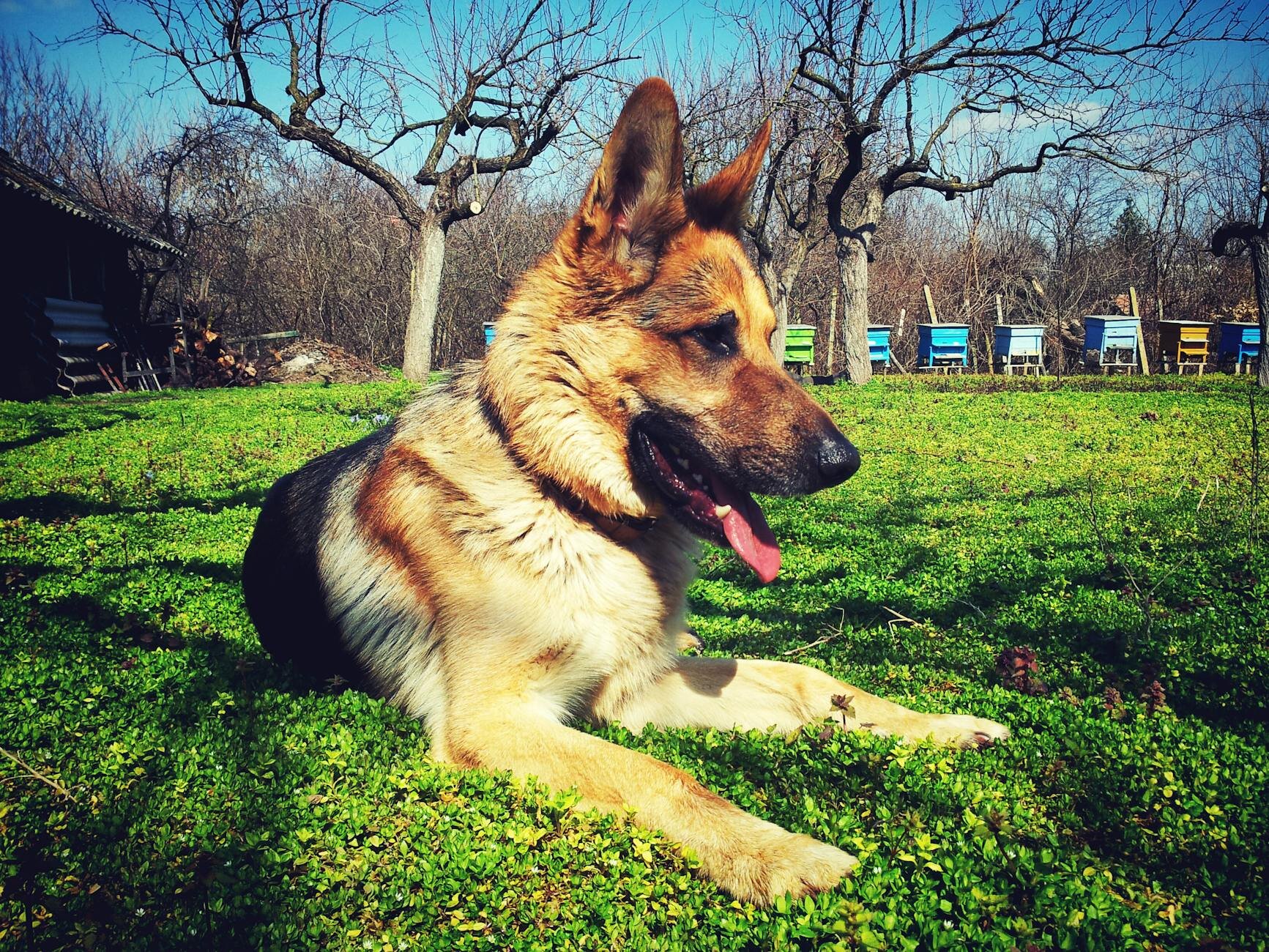
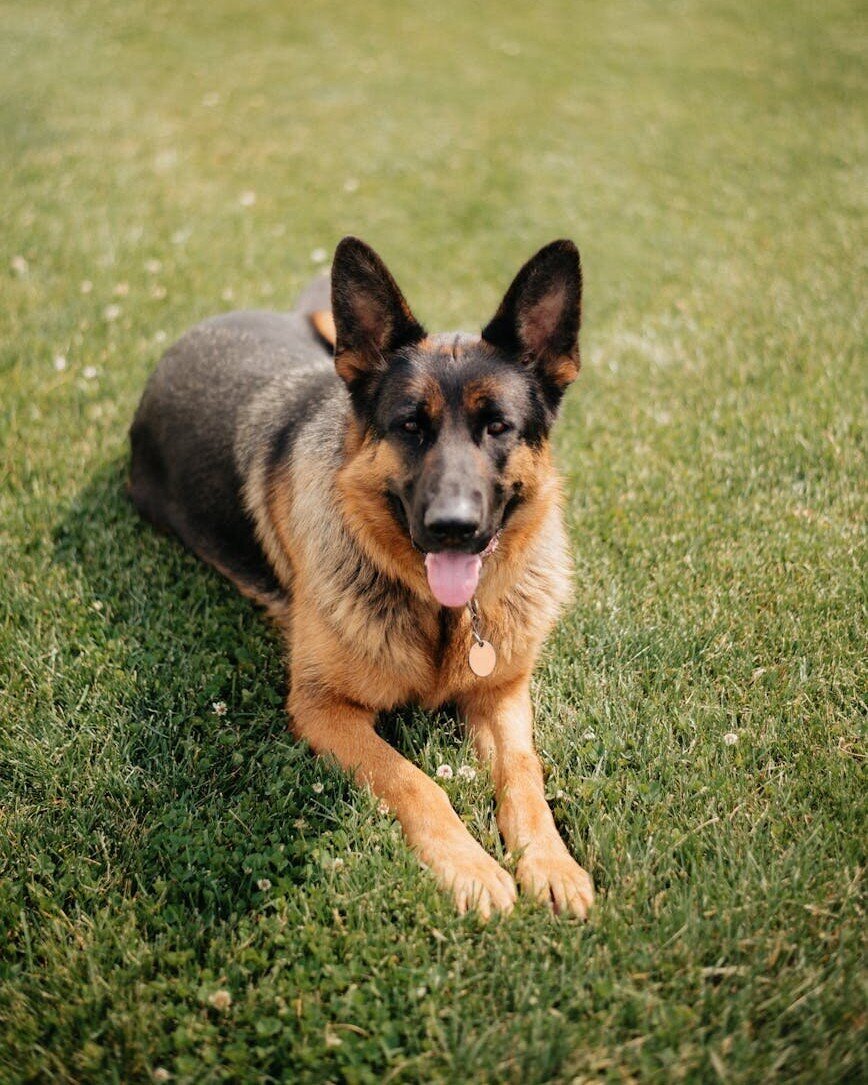
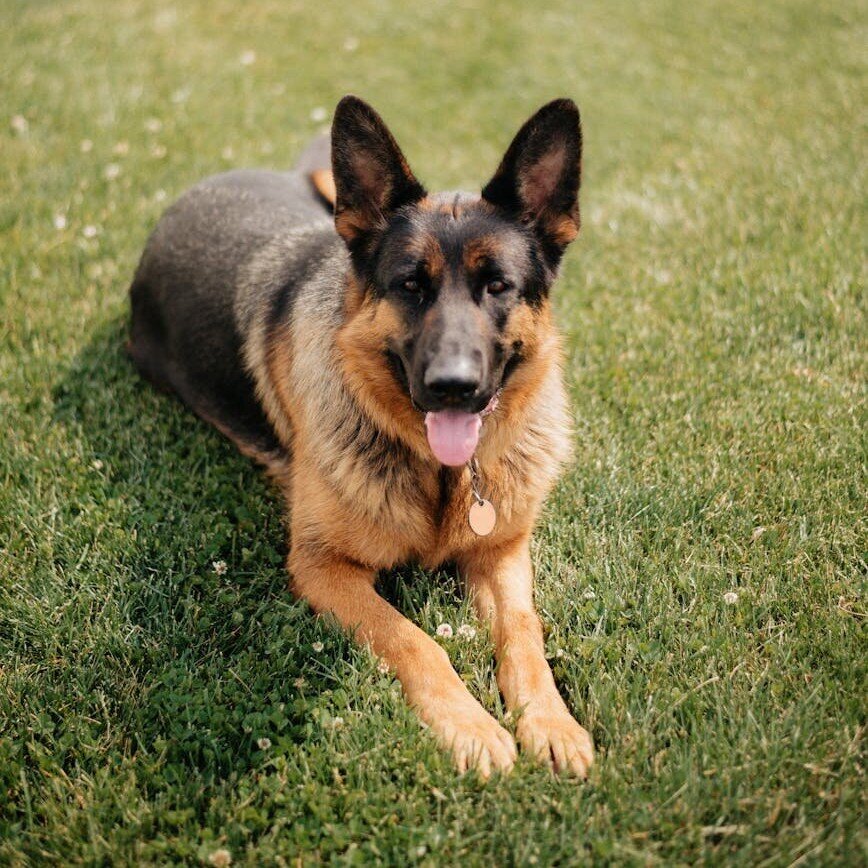
Flea & worming
Maintaining your German Shepherd's health relies on comprehensive, year-round parasite control that must cover fleas, ticks, heartworm, and intestinal worms.
Best flea and worming treatments for German Shepherds
To keep things simple, you could opt for an all in one monthly chewable or tablet, or opt for an annual heartworm injection supplemented by monthly worming and oral flea and tick treatments.
What to look for
Oral chews and tablets to avoid reduced effectiveness from bathing and swimming
All in one products for simplicity
Always double check the weight range to ensure an effective dose



Health
For German Shepherds with hip dysplasia and at risk of osteoarthritis, it can be helpful to add a joint care supplement into their daily routine or move to a over-the-counter or therapeutic veterinary diet focused on mobility support.
To reduce the risk of bloat (GDV), use a slow-feeder bowl, feed smaller, more frequent meals, and avoid vigorous exercise around mealtimes.
Best products for joint issues in German Shepherds
Hip dysplasia is the abnormal development of the hip joint. While it is a primarily genetic condition, its severity can be influenced by other factors like rapid growth, body weight, nutrition, and exercise. Because the genetics are complex, even dogs with normal hips can produce offspring with the condition.
The key to prevention is responsible breeding. In Australia, reputable breeders screen their dogs through schemes like the Australian National Kennel Council's (ANKC) CHEDS program or the PennHIP scheme, which can assess hip quality from as early as four months of age. When choosing a puppy, always ask the breeder for the hip and elbow scores of the parents. For diagnosis and management of hip dysplasia, it is essential to consult your veterinarian.
Hip dysplasia often leads to osteoarthritis in later life. Osteoarthritis in dogs is a painful condition where joint cartilage breaks down, causing inflammation and reduced mobility. Symptoms include stiffness, limping, and reluctance to jump.
The best way to manage arthritis is with a "multimodal approach," combining several strategies at once. This includes veterinary-prescribed medications to reduce pain, joint supplements and therapeutic diets with joint support ingredients, maintaining a lean body weight to reduce stress on joints, and using mobility aids like ramps and supportive bedding to improve comfort.
What to look for
Joint support supplements based on marine sources of omega fatty acids such as green lipped mussel powder or fish oil
Veterinary diets that provide joint support
Mobility support aids such as ramps, stairs and support slings
Best products to reduce the risk of bloat and GDV in German Shepherds
Bloat is a life-threatening condition whereby the stomach stretches many times its normal size and in many cases twists and rotates, cutting off its own blood supply.
Factors which can contribute to bloat and GDV include eating too quickly, eating one large meal a day and exercising close to meal time.
Strategies to reduce the risk include feeding small portions more frequently, using slow feeder bowls to reduce the speed of eating and avoiding exercise around mealtimes.
For more information about signs to watch for, and preventative strategies, take a read through our article: Bloat and GDV in Dogs.
What to look for
Puzzle toys that dispense small portions
Slow feeders to slow down mealtimes
Automatic feeders to dispense controlled portions
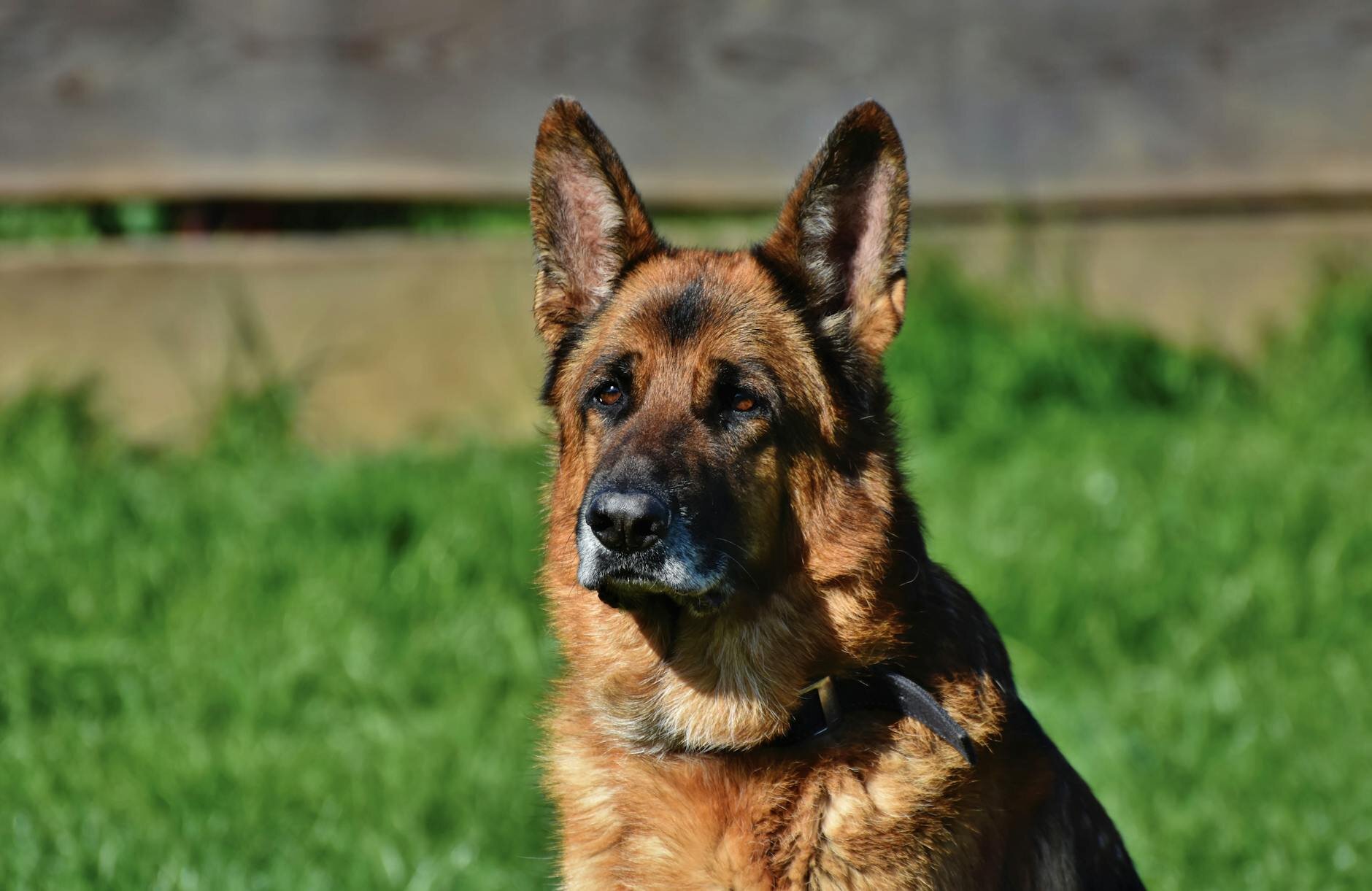
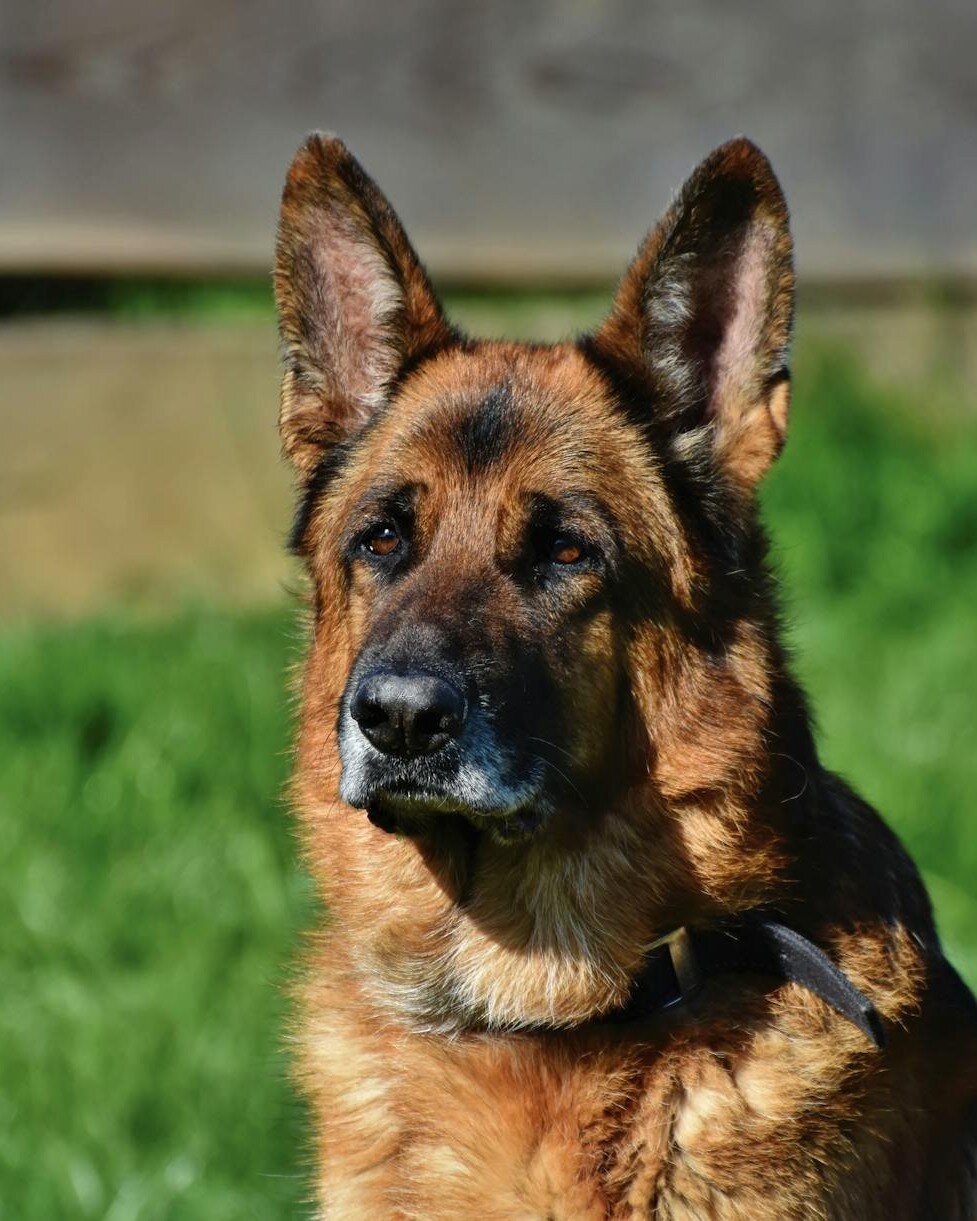
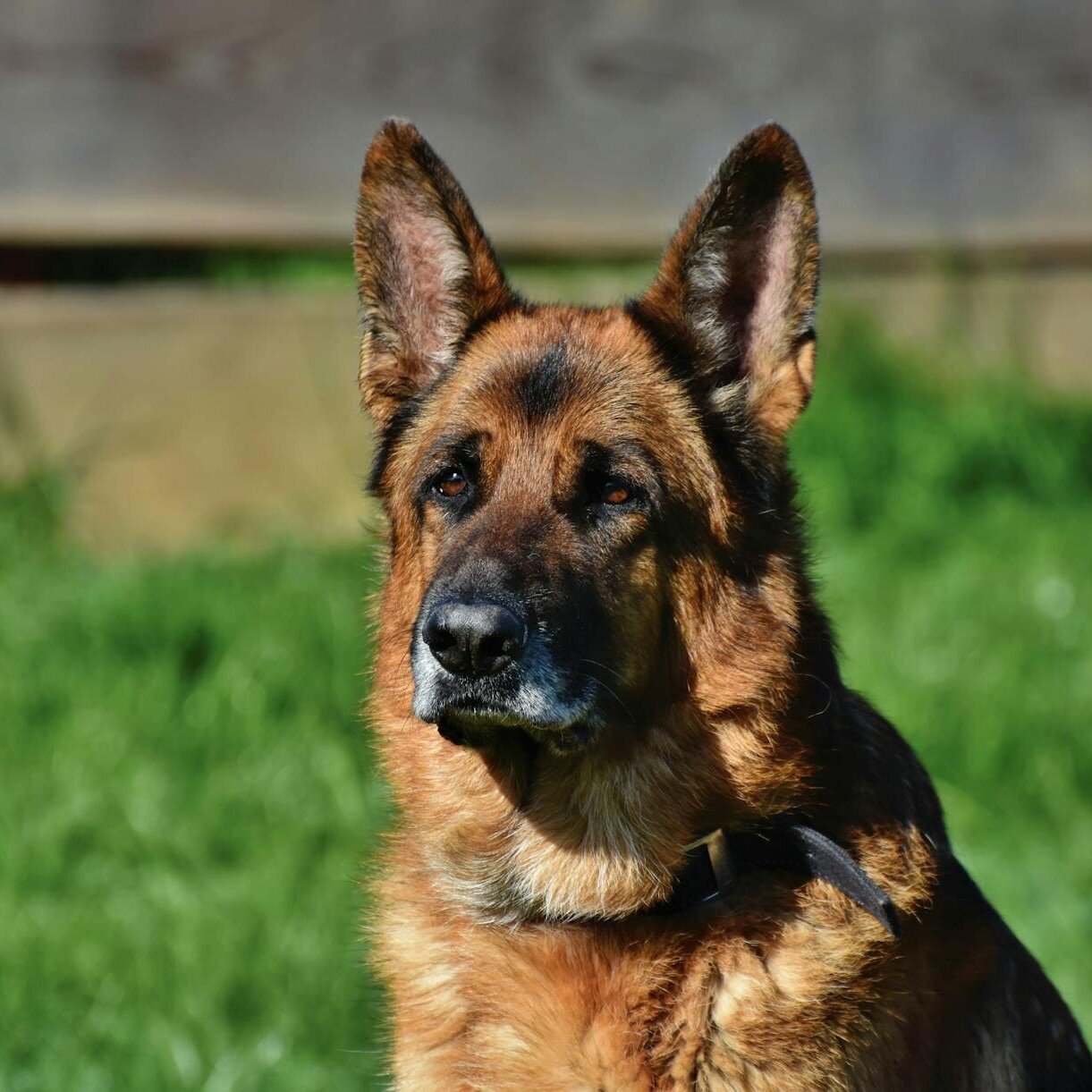
Training and activity
This highly intelligent and energetic working breed requires more than just a simple walk; they need at least 60-90 minutes of vigorous daily exercise, such as jogging, fetch, or swimming to manage their physical stamina. Critically, their minds must be exercised just as much as their bodies.
Best toys for German Shepherds
Consistent, positive reinforcement-based training from puppyhood, including early socialisation, is non-negotiable to channel their protective instincts positively. Providing them with a 'job' - whether through ongoing obedience, scent work, puzzle toys, or dog sports like agility - is the key to preventing the boredom and anxiety that can lead to destructive behaviours, ensuring they mature into the loyal, confident, and manageable dogs they were bred to be.
What to look for
Toys with a purpose
Toys for mental enrichment
Durable chew and tug toys
Best harnesses, collars and walking accessories for German Shepherds
Equipping a German Shepherd with the right walking gear is crucial for their safety and your control.
For walking a powerful dog like a GSD, a well-fitted harness is superior to a collar. It distributes pressure across the chest and shoulders, preventing strain on the neck while giving you far better control. Look for wide, sturdy nylon webbing, reinforced stitching, solid metal D-rings and buckles, and dual attachments including a front attachment to help reduce pulling behaviours. Avoid retractable leashes, as they offer very poor control over a powerful dog and can be dangerous.
What to look for
No pull harnesses or training collars to reduce pulling on the lead when walking
Dual clip harnesses and leads for extra control
Bite sized, high value treats and a treat pouch for training on the go
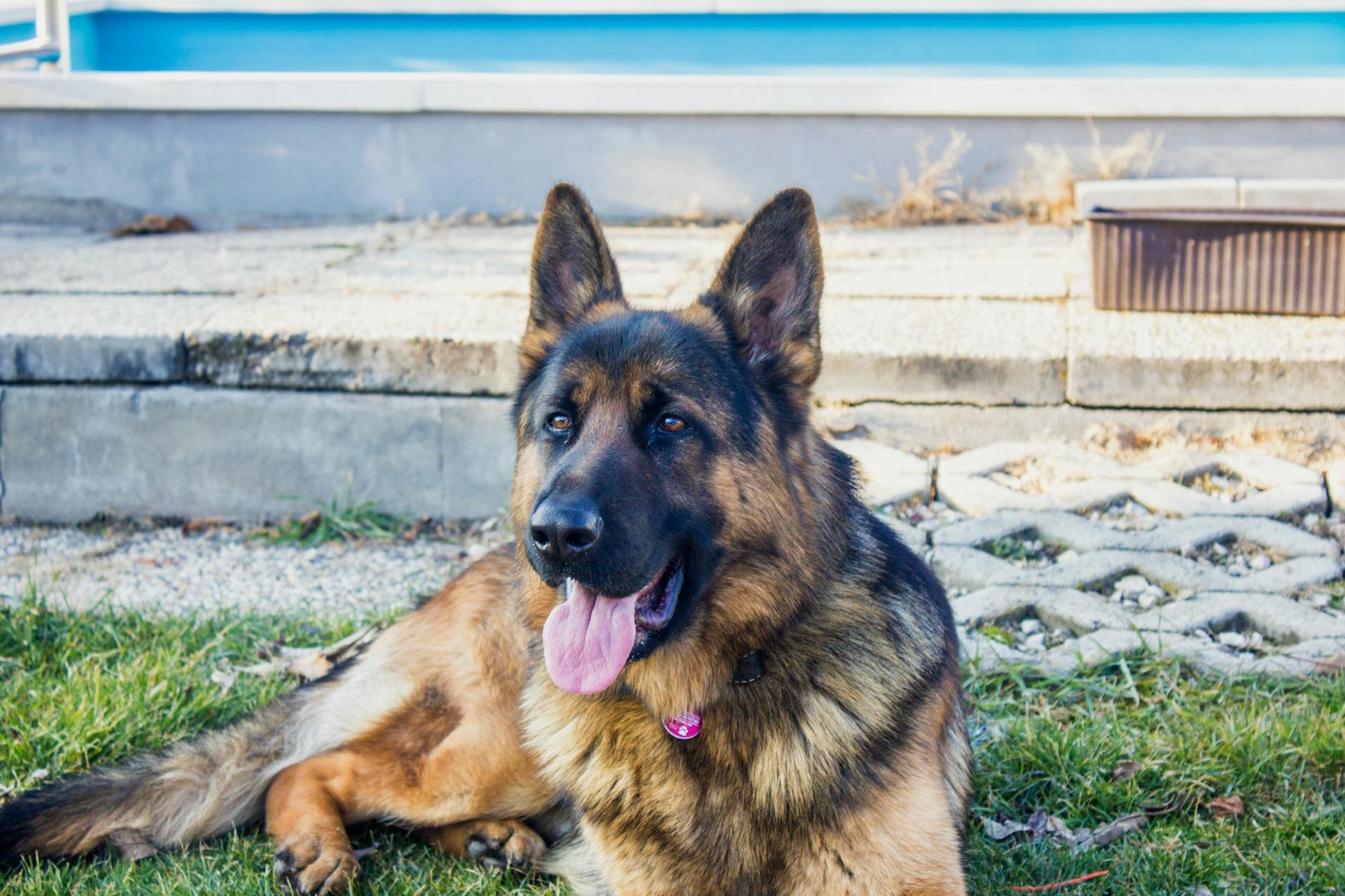
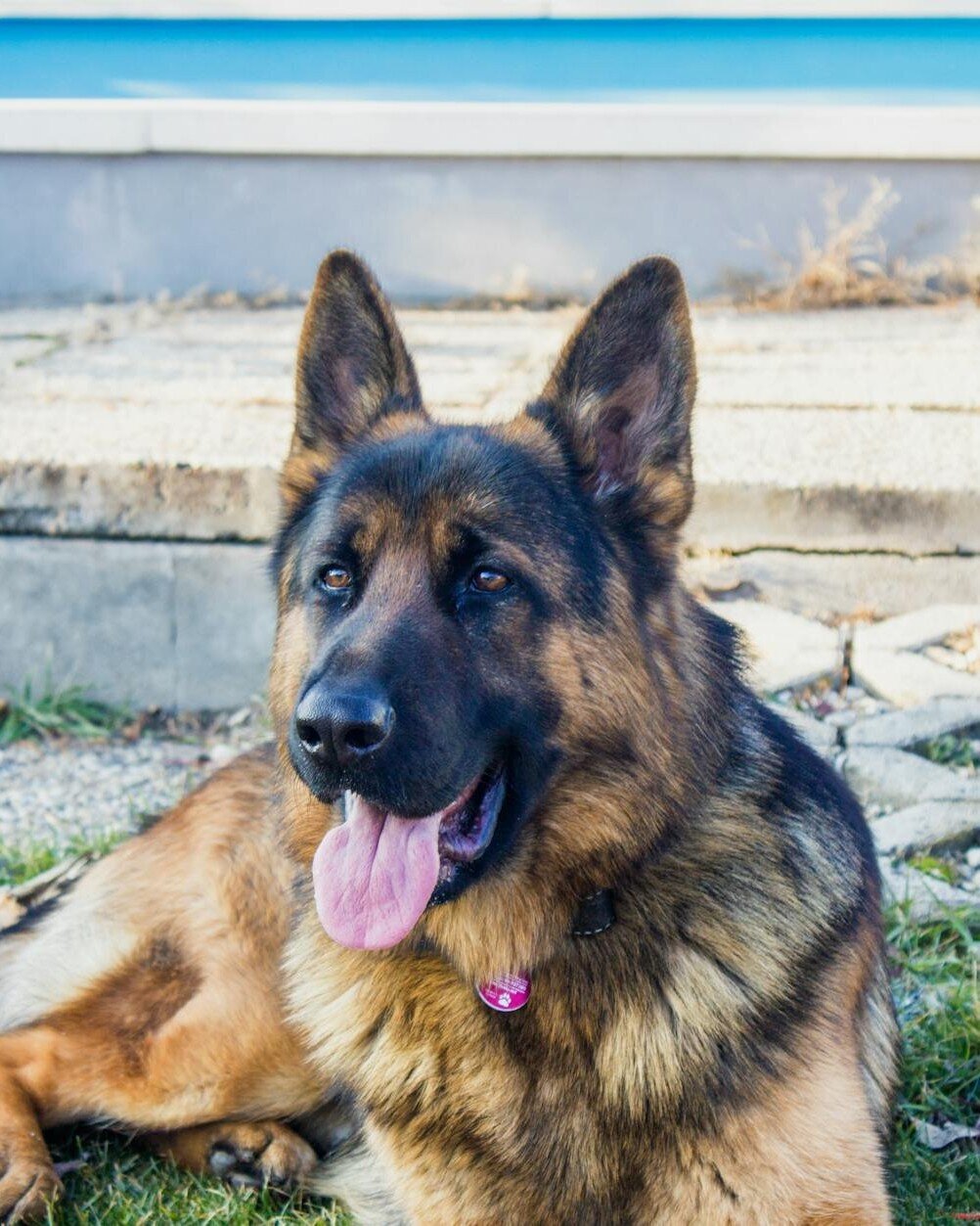
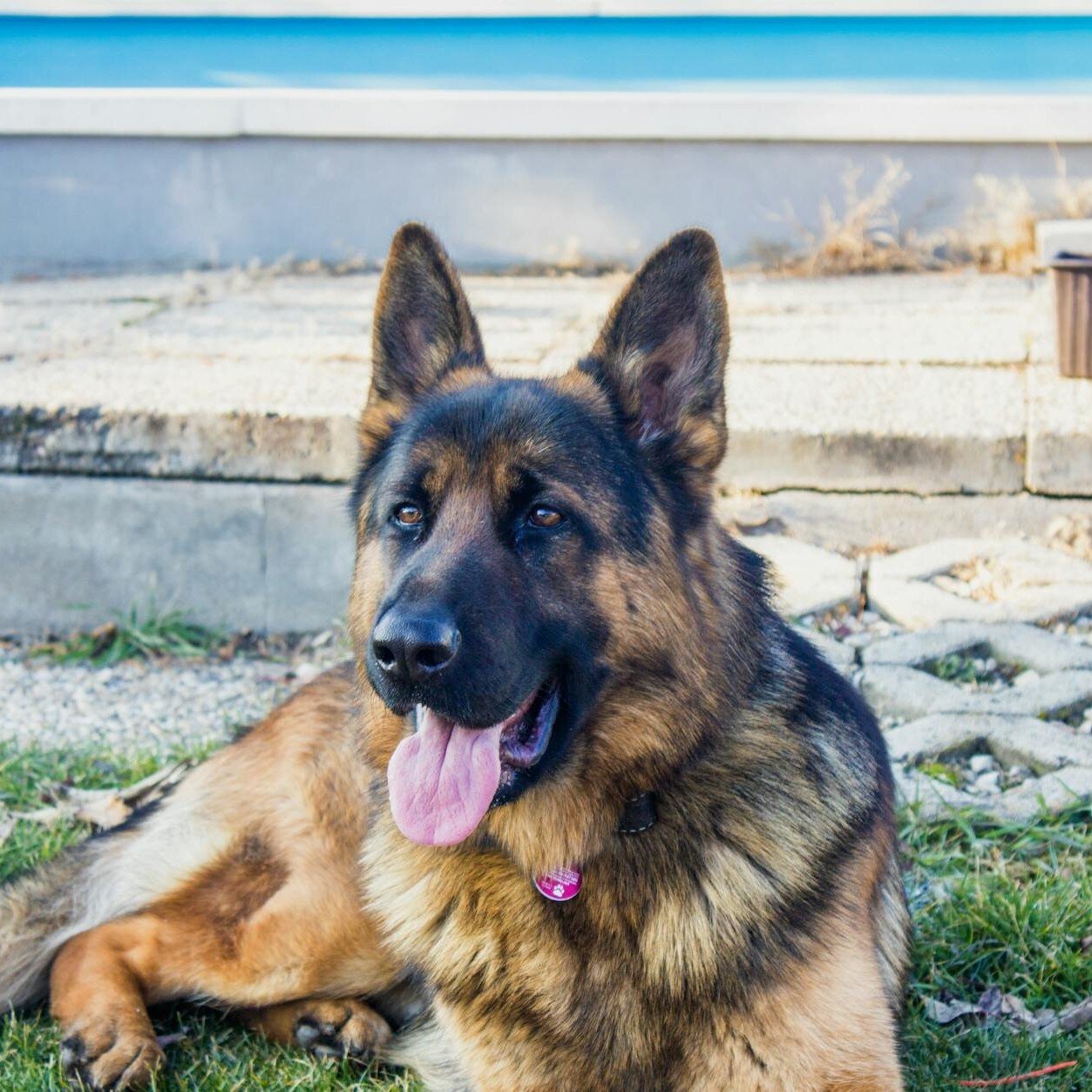
Grooming
Grooming a German Shepherd is a significant commitment, dominated by the challenge of managing their thick double coat. Known affectionately as "German Shedders," they shed moderately year-round and experience two major seasonal "coat blows" in spring and autumn.
Best grooming products for German Shepherds
To manage the German Shepherd coat and prevent matting, a thorough brushing session with an undercoat rake or de-shedding tool is essential at least two to three times a week, becoming a daily necessity during these peak shedding seasons.
Beyond the constant coat care, their grooming routine is straightforward: infrequent bathing to preserve their natural skin oils, regular nail trims to support healthy posture and foot structure, and routine ear checks to prevent infections.
What to look for
Deshedding tools designed for medium to long, double coated breeds
Slicker brush for finishing touches
Shampoos and conditioners that support a healthy skin barrier
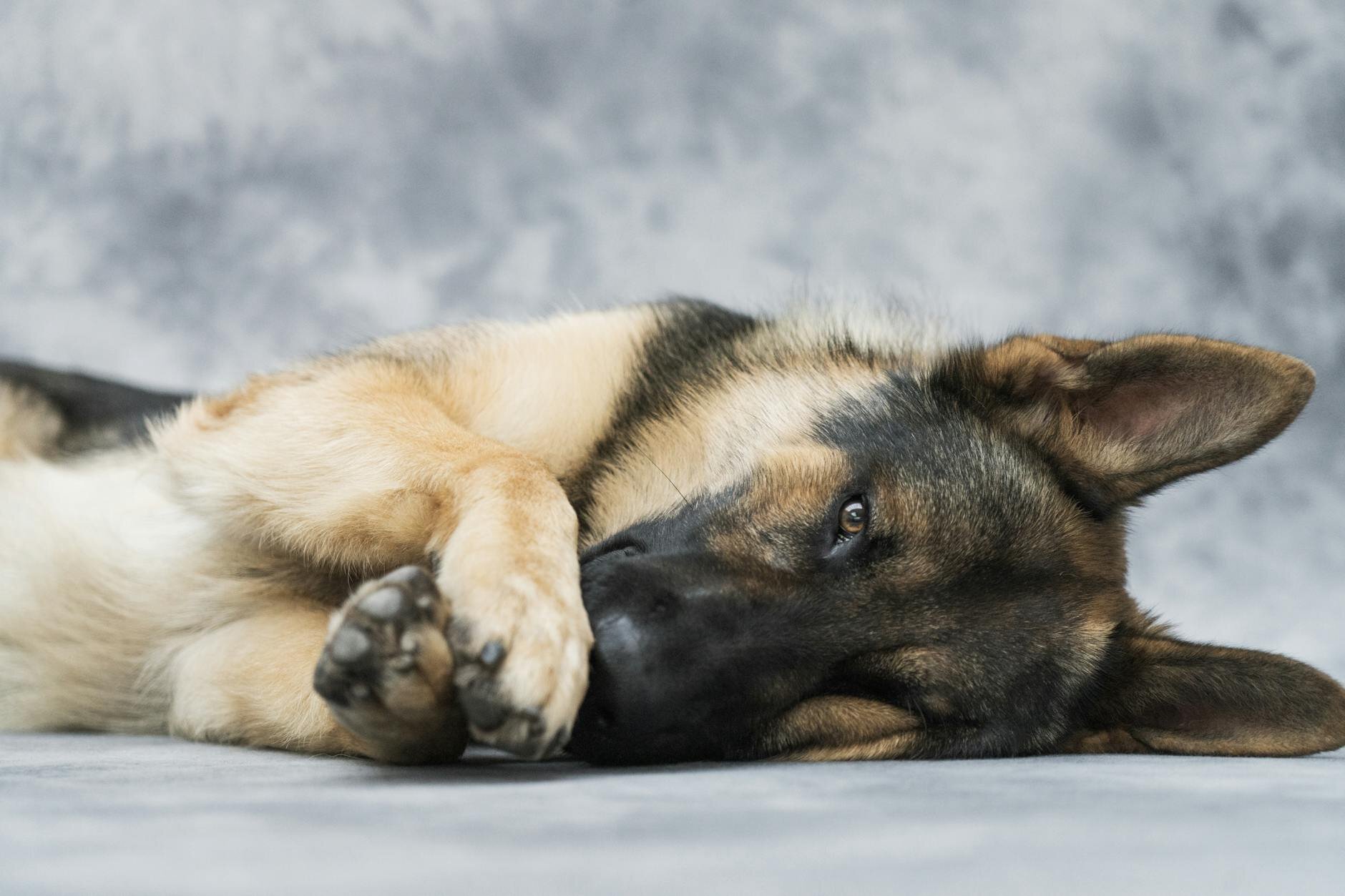
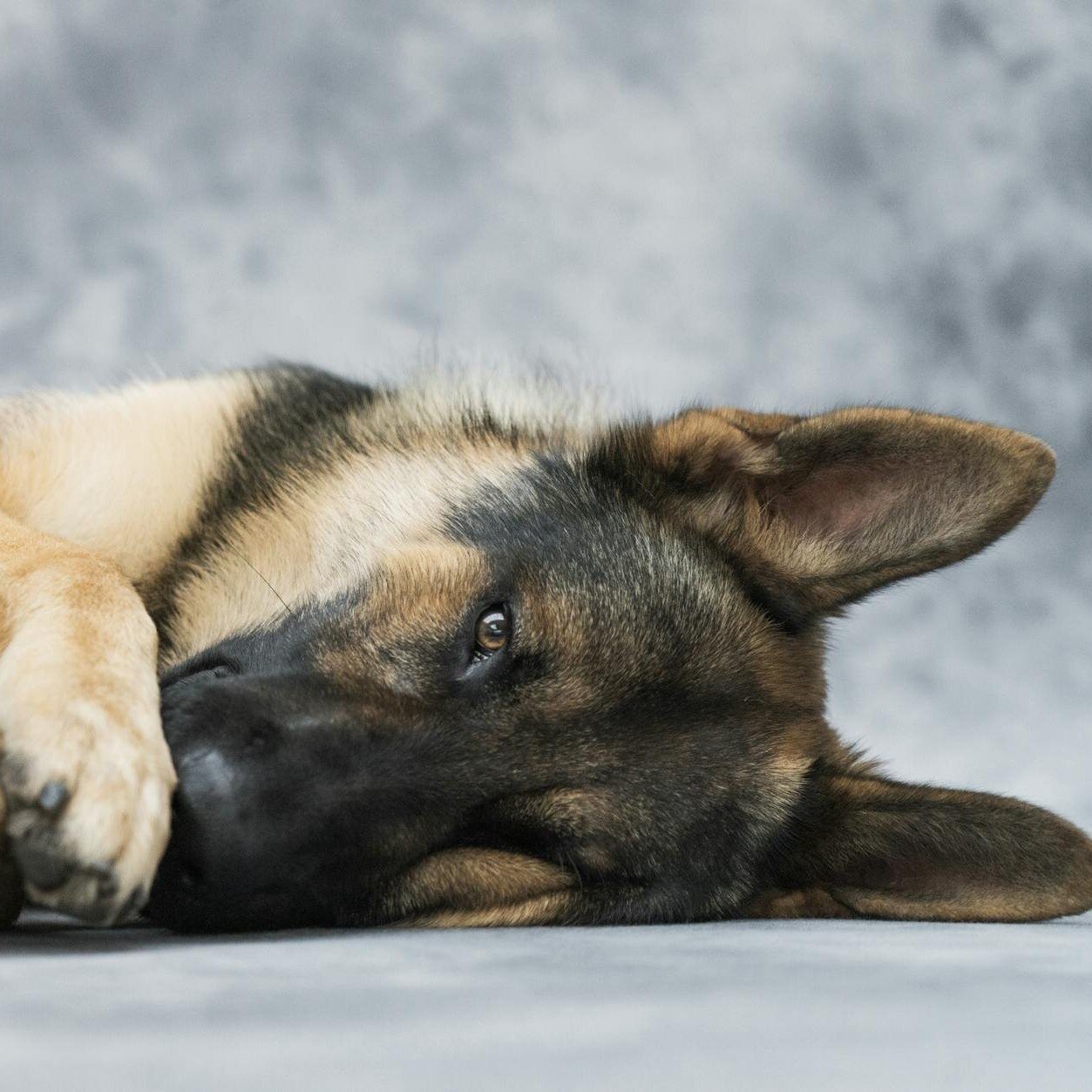

Sleep and home
As highly social "pack" animals, German Shepherds require a home where they can live indoors with their family, not isolated in a yard. They need a comfortable, dedicated bed or crate to serve as their personal den for rest.
Best beds for German Shepherds
To properly accommodate their large frame, a German Shepherd needs a spacious bed, typically at least 100cm by 70cm, that allows them to fully stretch out. For optimal joint health, especially as they age, choose a supportive orthopedic foam mattress. To ensure the bed lasts, look for practical features like a durable, machine-washable cover for easy cleaning.
What to look for
Extra support for joints from orthopaedic or memory foam
Durable, machine washable covers
Large or extra large size depending on your dog's measurements

